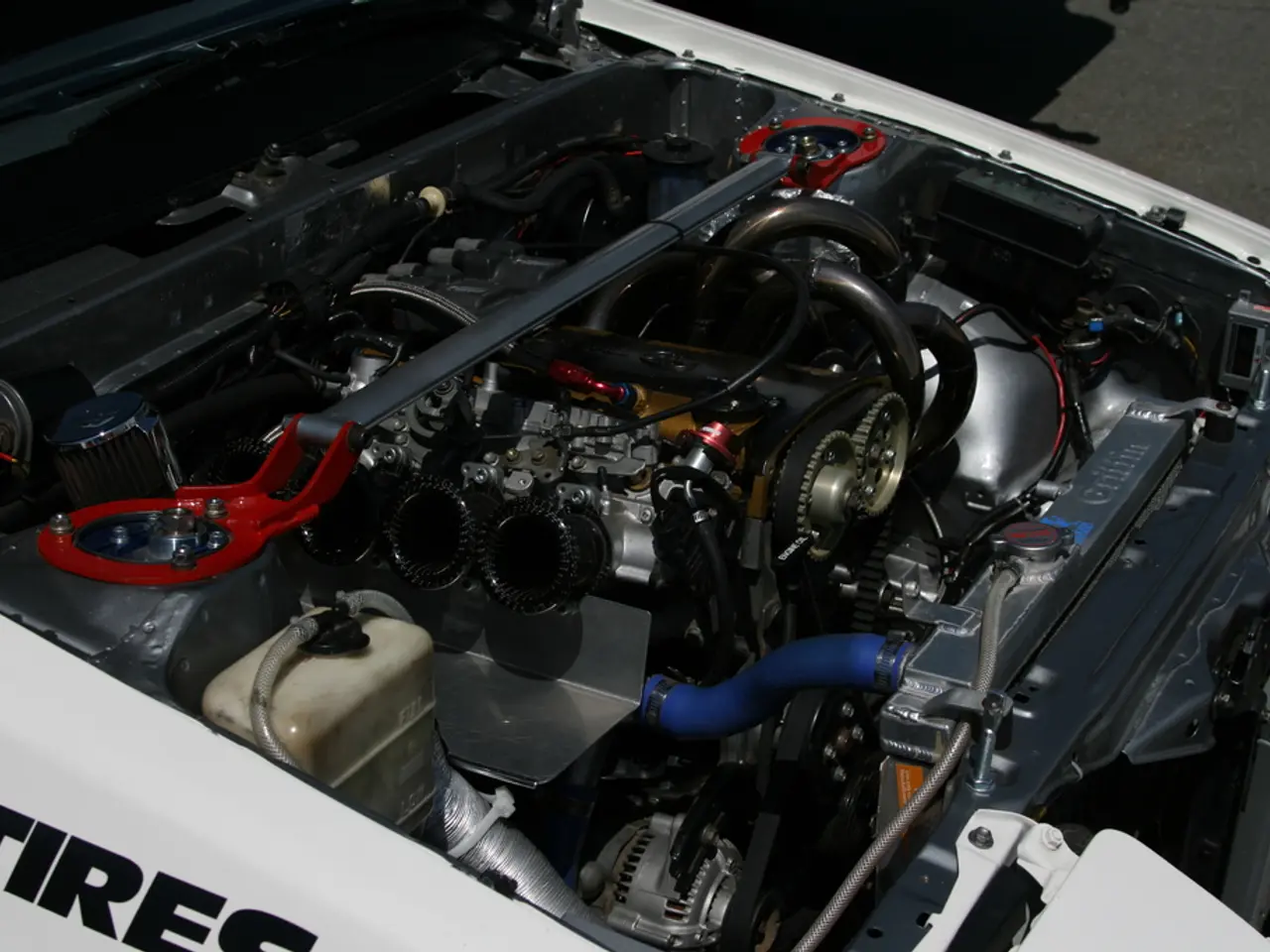Recycling Used Electric Vehicle Batteries to Power Data Centers' Expanding Energy Requirements, Courtesy of GM and Redwood Materials
In a strategic move to address the growing electricity demand, particularly from sectors like AI data centers and electrified transport, General Motors (GM) and Redwood Materials have announced a new agreement. This collaboration aims to accelerate the deployment of energy storage systems, combining GM’s new US-built batteries with second-life electric vehicle (EV) batteries through Redwood Materials' energy storage integration expertise.
The partnership, which targets fast, low-cost storage solutions, is a significant step towards meeting the challenge of increasing electricity demand. Kurt Kelty, VP of batteries, propulsion, and sustainability at GM, stated that electricity demand is climbing and will continue to accelerate.
Key contributions of this partnership include the utilization of both new and second-life GM EV batteries. Redwood Materials repurposes end-of-life batteries that still perform well to provide stationary energy storage, extending battery life beyond vehicles and reducing waste.
Addressing surging electricity demand is another crucial aspect of this collaboration. AI-powered data centers and transportation electrification are rapidly increasing electricity usage. For instance, data centers alone are expected to triple their national electricity share from 4.4% in 2023 to 12% by 2028. The energy storage systems help balance grid demand, ensure reliability during peak loads, and provide backup power.
The partnership also leverages US manufacturing and recycling capabilities, enabling fast deployment of energy storage systems that enhance energy resilience and support national manufacturing independence.
Moreover, Redwood Materials' energy storage systems can deliver power solutions that are crucial for managing the intermittent nature of renewable energy sources. JB Straubel, the co-founder of Tesla and Redwood Materials, emphasized that the deployment of these energy storage systems can strengthen America's energy and manufacturing independence.
Redwood Materials, founded in 2017 by JB Straubel, focuses on collecting, recycling, refining, and remanufacturing battery materials with a goal to create a closed-loop domestic supply chain for batteries. The company recently launched Redwood Energy, a new business that deploys both used EV packs and new modules into fast, low-cost energy-storage systems built to meet surging power demand from AI data centers and other applications.
General Motors stated that this new collaboration will mark a significant step towards expanding its battery technology beyond electric vehicles. Kelty asserted that General Motors is not just focused on making better cars, but also on shaping the future of energy resilience.
Already, GM’s second-life EV batteries power the largest second-life battery project and microgrid in North America, exemplified by Redwood’s 12 MW (63 MWh) installation in Nevada supporting AI infrastructure company Crusoe. This agreement signifies a strategic effort to extend battery utility beyond vehicles, integrate sustainable battery recycling, and supply flexible, scalable energy storage to meet critical demands of the clean energy transition amid rapid electrification of transportation and data infrastructure.
[1] General Motors Press Release. (2021). General Motors and Redwood Materials Announce Collaboration to Accelerate Deployment of Energy Storage Systems. Retrieved from https://media.gm.com/media/us/en/news/2021/09/22/general-motors-and-redwood-materials-announce-collaboration-to-accelerate-deployment-of-energy-storage-systems.html
[2] Redwood Materials Press Release. (2021). Redwood Materials Launches Redwood Energy to Deploy Fast, Low-Cost Energy Storage Systems. Retrieved from https://redwoodmaterials.com/news/redwood-materials-launches-redwood-energy-to-deploy-fast-low-cost-energy-storage-systems
[3] Redwood Materials Press Release. (2021). Redwood Materials and General Motors Announce Collaboration to Accelerate Deployment of Energy Storage Systems. Retrieved from https://redwoodmaterials.com/news/redwood-materials-and-general-motors-announce-collaboration-to-accelerate-deployment-of-energy-storage-systems
[4] JB Straubel. (2021). The Future of Energy Storage: A Conversation with JB Straubel. Retrieved from https://redwoodmaterials.com/blog/the-future-of-energy-storage-a-conversation-with-jb-straubel
- The energy transition relies heavily on science and technology, as exemplified by General Motors' collaboration with Redwood Materials, aiming to speed up the deployment of energy storage systems for sectors like AI data centers and transport.
- Kurt Kelty, GM's VP of batteries, propulsion, and sustainability, claims that our ever-growing electricity demand, particularly from fast-expanding sectors, necessitates innovative solutions like the use of both new and recycled batteries, such as those from EVs.
- Redwood Materials' energy storage systems not only provide a solution for balancing grid demand and ensuring reliability but also play a crucial role in managing the intermittent nature of renewable energy sources.
- investing in environmental-science, notably redwood materials' recycling capabilities, can contribute significantly to national manufacturing independence, resilience, and the clean energy transition given the growing electricity demand from the industry.
- Redwood Materials' new business, Redwood Energy, deploys used EV packs and new modules to deliver fast, low-cost energy storage systems, addressing a critical need for sustainable power solutions in real-estate applications like AI data centers and transportation.
- The collaboration between General Motors and Redwood Materials extends beyond vehicle technology, reaching into the business of shaping a more sustainable, resilient, and independent energy future, as reflected in their joint aim to expand battery utility and achieve a closed-loop domestic supply chain for batteries.




